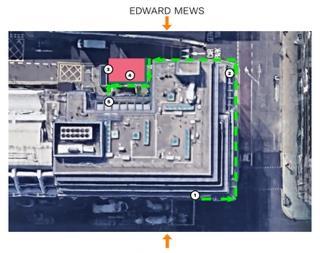News that the buy-to-let market is about to have its foundations rocked by the George Osborne’s hiking of tax for landlords is hardly welcoming in the New Year.

Buy-to-let is a key entrepreneurial activity in the UK. It enables those with the boldness to reach into the sector a way of supplementing income, either from other businesses or indeed employment.
My mantra is that it can actually enable people to move away from employment altogether and become financially free.
The supposed new dark cloud over the buy-to-let sector has been brought by two separate pieces of research.
One suggests that the Chancellor’s 3% rise on stamp duty for landlords, due to come into effect in April, will see more than 200,000 landlords – one in ten – leave the market.
With each landlord owning an average of 2.5 homes, that would bring half a million properties on to the market.
The second piece of research, by the National Landlords Association, suggests that the chancellor’s changes to tax relief will increase rents by between by as much as £113 a month. The impact is likely to be greatest in London, it is suggested.
Alarming headlines indeed, not only for tenants but also for would be buy-to-let prospectors. However, it is vitally important to put all of this into perspective.
The buy to let market is booming in the UK, in fact it is the best it’s ever been in the history of the property market.
When a property market booms, the Government – any government – will look for ways to gain extra revenue from this boom and cool the property market, afraid that first time buyers will be priced out of the market.
Well, let me share a harsh fact – first time buyers have been very much priced out of the market for the last 15 years.
London, which is used in the rent-hike research, is not at all a fair representation of the UK market. Why? Because a first-time buyer home is upwards of £400,000. London is bonkers and central London is insane with the average rent for a studio being £2,300.
Stamp duty
Yes stamp duty will affect those types of houses, however it won’t affect property investors like me and millions of other landlords. All the homes I buy-to-let are under £125,000. There is no stamp duty under this amount. In the last year I have purchased 107 homes in Manchester under £125,000. London does not give me cash-flow, in London I need huge amounts of capital to buy.
Manchester is booming as a city, job growth is phenomenal especially with the Media City housing over 300 companies. The surge in media and tech companies flocking to Manchester has seen an increase of 74% in the last year.
Success in the buy-to-let market is primarily down to doing the research – that is a must. But would-be landlord entrepreneurs – and indeed existing ones – should not be spooked by headlines.
Will there be 500,000 buy to let properties on the market due to George’s tax? Will landlords run away? I think this is nonsense.
The question is why would anyone want to do that, when the cash-flow you can make from your properties can replace your salary and you never have to work again? Yes, even with the changes in tax laws the cash-flow is more than worth it and the only landlords I see selling are the ones in London, who will sell in order to buy six properties in Manchester for the same price as one in London and receive way more cash-flow and pay no stamp duty.
One other potential area of growth that could affect buy-to-let comes from the new pension laws. As most know already, you can withdraw your pension to purchase buy-to-let property. We have not even reached the tip of the iceberg yet on this new law change due to a lack of education – a lot of pensioners still don’t know they can do this, but the ones that do know this have reacted so fast that now 38% of all property purchases in the UK are cash buyers, no mortgage. The figure is made up largely of pensioners who have downsized their own houses and managed to buy three or four buy-let-properties, thus making the need for a pension obsolete.
The tax-induced doom and gloom is, sadly, predictable. But for those entrepreneurs willing to take the plunge and more importantly, do the vital elements of research the market for buy-to-let entrepreneurs – be they pensioners or otherwise – is still strong. And that is welcome news for 2016.
Marco Robinson is a bestselling author and award winning entrepreneur. He won the People’s Choice I-Property Best Real Estate Investor 2015 and is the author of the forthcoming book The Financial Freedom Guarantee. https://marcorobinson.com/






























7 Readers' comments